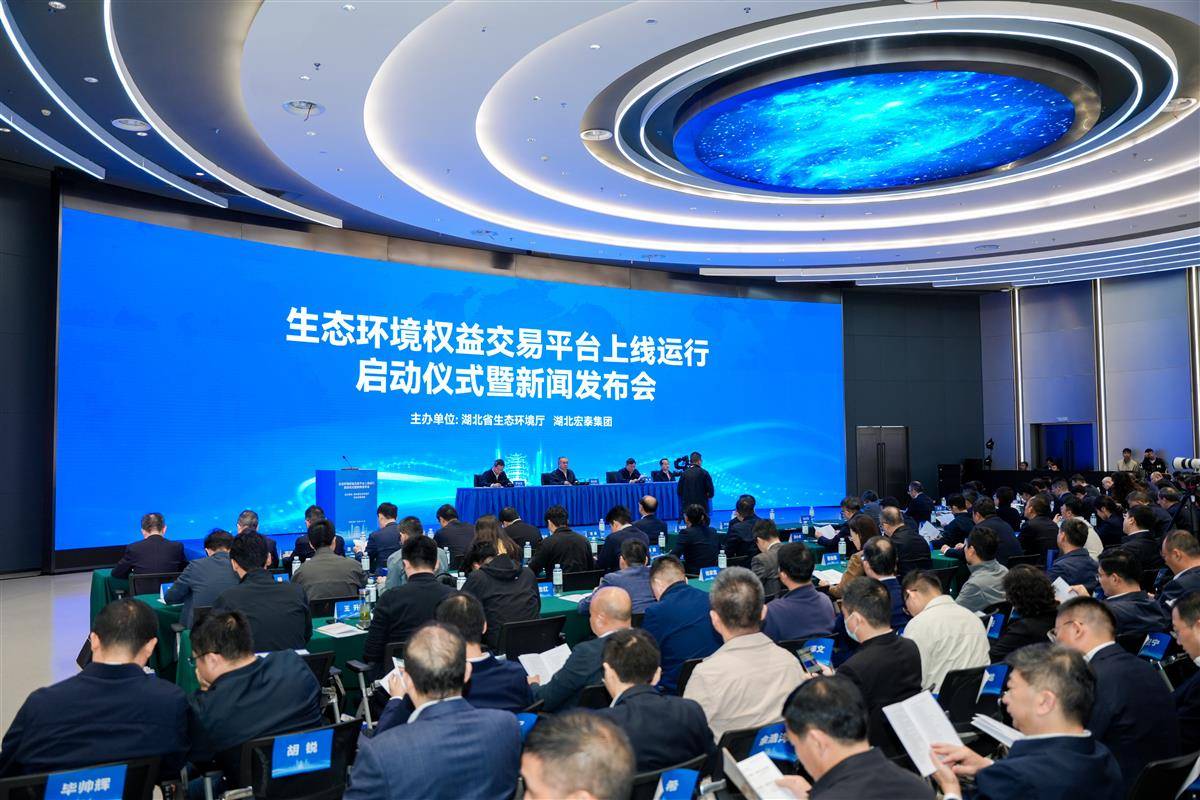How can we value high-quality water resources from Shiyan City and fresh air from Baokang County? In Hubei Province, there is now a clear answer. On October 18, the nation’s first provincial-level trading platform deeply integrating five major environmental resource elements—the Ecological Environment Rights Trading Platform—was launched in Wuhan.
This platform breaks from traditional single-category trading models by integrating five key functions: carbon emission rights, pollution discharge rights, ecological products, solid waste resources, and green finance, providing enterprises with comprehensive green transformation solutions.
The platform’s most notable feature is enabling “ecological product value realization” transactions. Through scientific accounting, it assigns clear values to fresh air, clean water sources, abundant carbon sinks, and scenic landscapes, transforming previously unrecognized ecological treasures into tradable assets. It also employs an innovative “online marketplace + trade fair” model, facilitating convenient online transactions and precise offline matching.
The platform has established a clear development roadmap: by the end of 2027, it aims to become a fully functional ecological rights trading platform with完善的制度, diverse products, and active markets; by the end of 2030, it will evolve into a comprehensive Yangtze River Basin Ecological Environment Rights Trading Center with robust systems, diverse markets, and complete service frameworks.
This platform is designed to create a Wuhan-based ecological environment rights exchange serving central China, radiating nationwide, and focusing on the Yangtze River Basin, providing innovative market-based solutions for China’s green low-carbon development. This initiative represents both Hubei’s pioneering effort in implementing national resource and environmental element marketization reforms and its contribution to serving the national unified market and facilitating domestic economic circulation.
Shiyan City
Shiyan City is a prefecture-level city in northwestern Hubei Province, China, situated in the Han River Valley. It is most famously known as “Motor City” or the “Detroit of China” because it is a major national hub for the automotive industry, serving as the headquarters for the Dongfeng Motor Corporation. Historically, the area is also significant for its proximity to the UNESCO World Heritage site of Wudang Mountains, a cradle of Taoism renowned for its ancient monasteries and martial arts traditions.
Baokang County
Baokang County is a county located in the mountainous western region of Hubei Province, China. Historically, it has been an area known for its natural resources, traditional agriculture, and as part of the ancient Chu cultural sphere. In more recent history, it was also a significant base area for communist forces during the Chinese Revolutionary Civil War.
Hubei Province
Hubei Province, located in central China, is historically significant as the heartland of the ancient Chu State and the location of the powerful Zhou dynasty state of Chu. It is most famously known as the place where the 1911 Wuchang Uprising began, which led to the fall of the Qing dynasty and the establishment of the Republic of China. Today, the province is also renowned for the Three Gorges Dam, the world’s largest power station, and its capital, Wuhan, is a major economic and transportation hub.
Wuhan
Wuhan is a major city in central China, located at the confluence of the Yangtze and Han rivers. Historically, it has been a key transportation hub and was the site of the 1911 Wuchang Uprising, which led to the fall of the Qing Dynasty. The city is also known globally in recent history as the initial epicenter of the COVID-19 pandemic.
Ecological Environment Rights Trading Platform
The Ecological Environment Rights Trading Platform is a market-based mechanism established to facilitate the trade of environmental rights, such as carbon emission allowances or pollution permits. It emerged as a policy tool to incentivize emission reductions and promote sustainable development by allowing entities to buy and sell these rights. These platforms have gained prominence globally as part of climate change mitigation strategies, with notable examples including the European Union Emissions Trading System.
Yangtze River Basin
The Yangtze River Basin is the cradle of Chinese civilization, with a history of human habitation and rice cultivation dating back millennia. It has been a vital economic artery and cultural heartland, fostering major cities and dynasties throughout China’s history. Today, it remains crucial for agriculture, transportation, and hydroelectric power, most notably with the Three Gorges Dam.
Yangtze River Basin Ecological Environment Rights Trading Center
The Yangtze River Basin Ecological Environment Rights Trading Center is a market-based platform established in China to facilitate the trading of environmental rights, such as pollution discharge permits and carbon emission quotas. It was created to support ecological conservation efforts along the Yangtze River, promoting sustainable development by incentivizing reductions in environmental impact. This initiative reflects China’s broader strategy to address pollution and climate challenges through economic mechanisms.
Wuhan-based ecological environment rights exchange
The Wuhan-based Ecological Environment Rights Exchange is China’s first environmental and energy rights trading platform, established in 2008. It facilitates market-based trading of emissions rights, pollution discharge permits, and carbon credits as part of national ecological civilization reforms. The exchange represents a pioneering approach to using market mechanisms for environmental governance in China.





